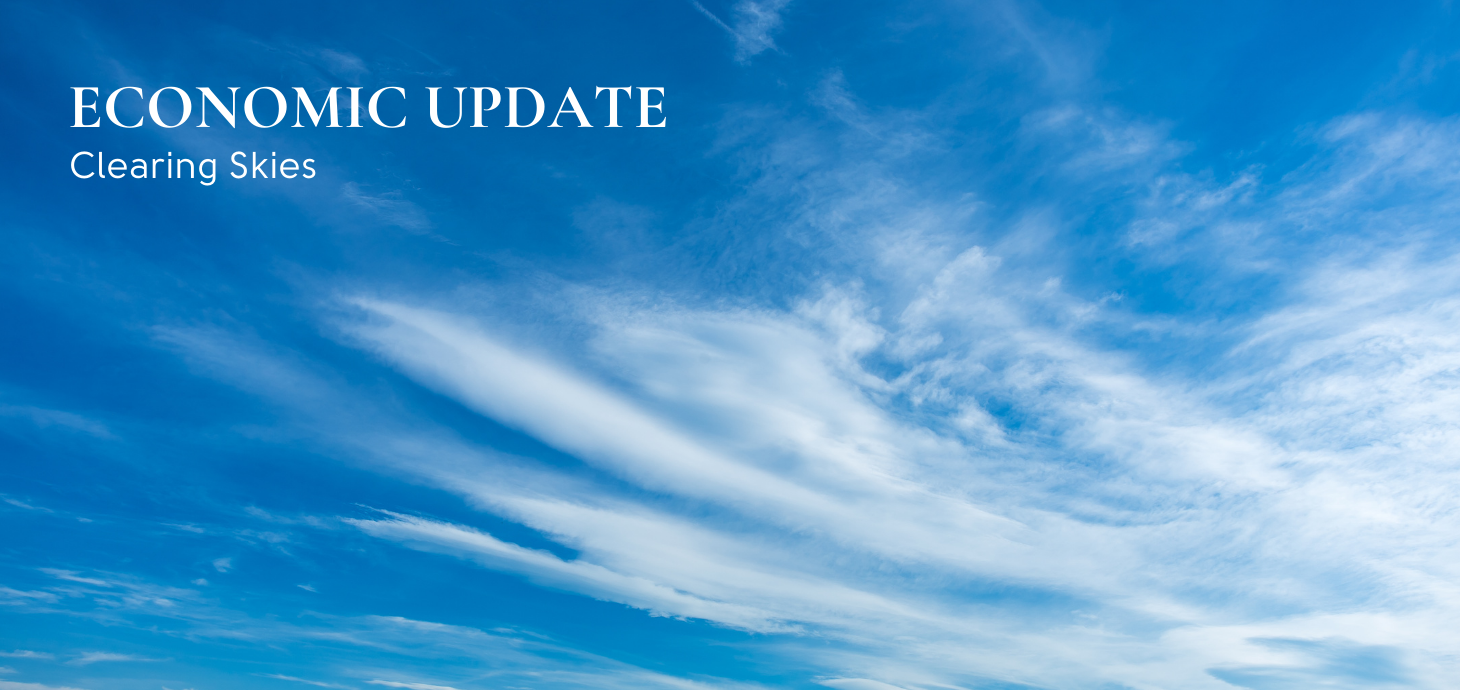Economic Update – Clearing Skies

Friends,
Welcome to Spring! Now more than ever, here’s to the idea that this is indeed a time of hope, rebirth, and health. Economically speaking, what better sign of hope is there than $1,900,000,000,000 landing on our doorsteps?! Quite a way to make sure
Spring comes in like a lion, while COVID is primed to go out like a lamb.
In reality, we have all learned that neither stimulus nor a pandemic are quite so simple and that both have long lasting implications. Here is a look at how these appear to us as we prepare for Q2 and beyond.
COVID Effect
With domestic cases at a plateau for now, 20% of America vaccinated, and a pathway to every adult having access to vaccination in the coming weeks, optimism is certainly on the rise. Most states and businesses are still using caution for now, but consumers
appear ready to unleash demand and their stimulus checks in the months ahead. This appetite and ability to spend is likely to result in GDP growth throughout 2021 and could provide the framework for what would feel like an economic boom in the late
spring and summer. Sectors like hospitality, tourism, and restaurants are continuing to feel the pain of high unemployment and slow rebounds, but these conditions provide a glimpse of a recovery that has likely already begun.
Stimulus Effect
The most recent $1.9 trillion injection and the almost $3 trillion total stimulus in the past 12 months will have a fairly clear impact: more spending and growth. However, there are other implications that are important to note. For example, that amount
of money showing up without a corresponding fundamental change in demand and other conditions would normally mean inflation is right behind Door #2. There is a growing chorus of voices that think this will happen in exactly that way, but the all-important
Federal Reserve isn’t so sure. Jerome Powell continues to make an interesting and just-as-valid dual point. First, the recovery is uneven: it is allowing some to grow their wealth (and notably more than it is impacting their spending) while
leaving others still unemployed or struggling. This means that many of the stimulus dollars are only going to plug holes for them, will not impact spending much among the wealthy, and therefore does not create inflation pressures as much as we may
think. Second, the Fed has changed its idea of acceptable inflation to now revolve around average inflation rather than inflation at a single point in time. Therefore, given inflation that has rarely been much higher than 1% for years now,
the Fed can let the economy run hot and allow for some inflation for quite some time before the average inflation reaches 2%. This plays into their plan to keep interest rates at or near zero through 2023, which they reiterated just last month. Long
story short: stimulus spending and growth will not be slowed down by the Fed in 2021.
Geographic Effect
COVID has set the stage for a material and important population shift within the US. Remote work capabilities, burnout, and general perspective on life and balance have already led to significant numbers of relocations, and we expect this to continue
through 2021 and likely beyond. This kind of displacement will have unavoidable impacts on certain geographic areas of the country for years to come. Areas that lose people will lose companies, tax revenues, and even congressional representation.
Those that gain people will see opposite impacts but will also struggle with infrastructure, affordable housing, and smart growth. Our markets in the Carolinas and Georgia are undeniable winners in this equation and we are already seeing investments
and businesses popping up to meet the demand.
Our team believes wholeheartedly that our markets and each one of you are set up for success in the long term. We are excited to partner with you as the skies clear so that we can help you take advantage of these trends. Thank you as always for the privilege of serving you!
by Cal Hurst, Chief Banking Officer



.png?sfvrsn=4583b53d_0)
